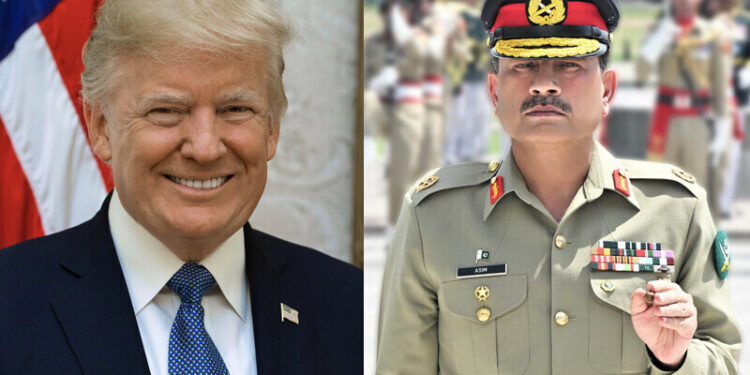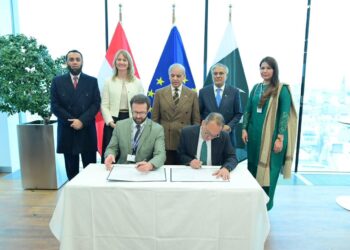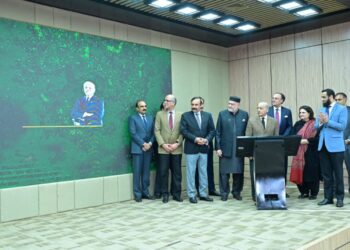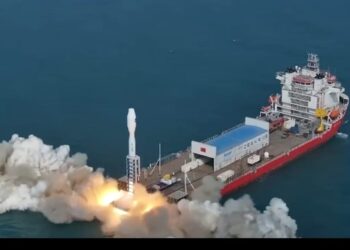Washington, D.C. / Islamabad — In a pivotal high-level meeting that underscores Pakistan’s growing diplomatic significance, Pakistan’s Chief of Army Staff, Field Marshal Syed Asim Munir, and U.S. President Donald Trump jointly emphasized the need for a peaceful resolution of the ongoing Iran-Israel conflict. The statement was issued by Inter-Services Public Relations (ISPR) following an extended meeting between the two leaders at the White House.
The meeting marks a significant chapter in Pakistan-U.S. bilateral relations, occurring at a time when the Middle East is teetering on the edge of a larger regional confrontation.
High-Profile Meeting in Washington: An Overview
Lunch in the Cabinet Room Followed by Oval Office Visit
The meeting between Field Marshal Asim Munir and President Trump took place during a formal lunch in the Cabinet Room of the White House. Following this, the Pakistani delegation was taken to the Oval Office, where the conversation continued in a more personal and symbolic setting.
Key Attendees on Both Sides
The session included high-ranking officials from both countries. Representing the United States were:
- President Donald Trump
- Secretary of State Senator Marco Rubio
- Steve Witkoff, U.S. Special Representative for Middle East Affairs
Representing Pakistan:
- Field Marshal Syed Asim Munir, Chief of Army Staff
- National Security Advisor of Pakistan
The presence of such senior-level figures demonstrates the importance both nations placed on this engagement.
Mutual Gratitude and Acknowledgment of Past Cooperation
During the meeting, Field Marshal Munir expressed his gratitude to President Trump for his constructive and fruitful diplomatic efforts, particularly in facilitating a ceasefire between Pakistan and India during a recent crisis. The Field Marshal emphasized that the people and government of Pakistan valued the role played by the United States in promoting regional peace and stability.
Acknowledging U.S. Diplomacy in South Asia
Pakistan’s acknowledgment of Trump’s mediation efforts during times of regional tension with India highlights the importance of third-party diplomacy in maintaining peace in South Asia. In the past, U.S. leaders have often played critical roles in de-escalating Indo-Pak tensions, especially following incidents along the Line of Control (LoC).
Trump Praises Pakistan’s Regional Role and Counter-Terrorism Efforts
President Donald Trump, in turn, appreciated Pakistan’s consistent efforts toward regional peace, particularly highlighting counter-terrorism cooperation between the two countries.
According to ISPR, both sides reiterated their commitment to maintaining and enhancing cooperation in counter-terrorism, including:
- Intelligence sharing
- Joint operations
- Capacity building for counter-terrorism units
- De-radicalization programs
Such collaboration is particularly crucial in the post-2021 Afghanistan withdrawal context, as instability in the region has created new challenges and power vacuums.
Strategic Dialogue on Iran-Israel Conflict
A Call for Peace and De-Escalation
One of the most important topics discussed during the meeting was the rising tension between Iran and Israel. According to the ISPR statement, both Field Marshal Asim Munir and President Trump stressed the urgent need for a peaceful resolution to this crisis.
This call for de-escalation comes at a time when the Middle East is at a critical juncture, with the potential for a regional war involving multiple state and non-state actors.
Shared Concerns
During the discussion, both sides reportedly expressed concerns about:
- The humanitarian cost of the conflict
- The risk of broader regional destabilization
- The impact on global oil prices and supply chains
- The involvement of militias and proxy groups
Field Marshal Munir emphasized Pakistan’s neutral stance, reaffirming the country’s long-standing position in favor of dialogue, diplomacy, and peaceful conflict resolution.
Exploring Future Cooperation: Trade, Technology, and Strategic Sectors
Beyond the regional security concerns, the meeting also delved into broadening bilateral cooperation across emerging and traditional sectors.
Economic and Trade Cooperation
President Trump expressed his willingness to pursue a long-term trade agreement with Pakistan based on mutual benefit and shared growth goals. Both leaders explored opportunities in:
- Textiles and manufacturing
- Agricultural exports
- Infrastructure and logistics
Emphasis on Emerging Technologies
Recognizing the evolving global economy, the leaders also discussed enhancing collaboration in cutting-edge sectors such as:
- Artificial Intelligence (AI)
- Cryptocurrency and digital finance
- Renewable and conventional energy sectors
- Minerals and natural resource extraction
These discussions reflect Pakistan’s intention to diversify its economic partnerships and President Trump’s interest in establishing new, non-traditional alliances in South and Central Asia.
A Symbolic Gesture: Invitation to Visit Pakistan
As the meeting concluded, Field Marshal Asim Munir officially extended an invitation to President Trump on behalf of the Government of Pakistan to pay an official visit to the country at a mutually convenient time.
Such a visit, if confirmed, would mark an important moment in diplomatic history and provide an opportunity to:
- Bolster people-to-people ties
- Explore investment opportunities
- Strengthen military and diplomatic coordination
President Trump reportedly responded positively to the invitation, acknowledging the strategic importance of Pakistan in regional and global geopolitics.
Extended Meeting Indicates Strong Diplomatic Chemistry
Although the meeting was originally scheduled for one hour, it extended to more than two hours, indicating deep mutual interest and a friendly atmosphere. The extra time allowed both sides to cover a wide array of bilateral and regional issues, demonstrating that relations are now moving beyond mere symbolism and into strategic engagement.
Diplomatic Milestone
ISPR described the meeting as “an important milestone” in the continuing evolution of Pakistan-U.S. relations, reaffirming that both nations are committed to peace, security, and economic progress.
Conclusion: A New Era of Strategic Partnership
The extended and productive meeting between Field Marshal Asim Munir and President Donald Trump symbolizes a renewed era in Pakistan-U.S. relations, built on shared goals and mutual respect. As the global geopolitical landscape becomes more complex, partnerships like these are essential for:
- Combating terrorism
- Preventing regional conflicts
- Promoting economic stability
- Addressing emerging technological challenges
By jointly calling for peace in the Iran-Israel conflict and expressing intent to deepen bilateral cooperation, Pakistan and the United States have signaled their readiness to shape a more peaceful and prosperous future together.
As diplomatic observers around the world take note, this meeting may very well set the tone for strategic developments in the months and years ahead.

























